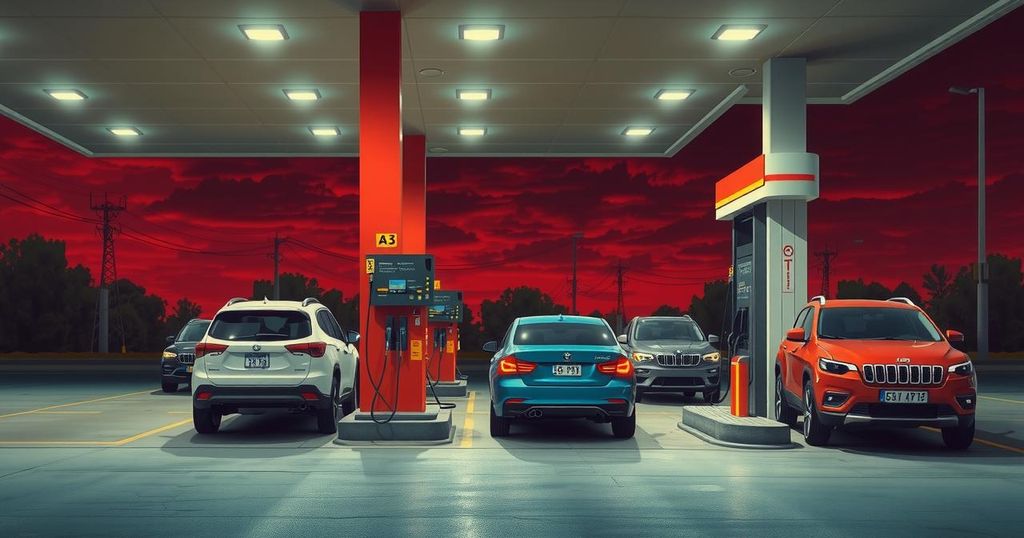Bolivia is experiencing a significant fuel shortage, causing long lines and public dissatisfaction. Additionally, U.S. consumer confidence has fallen by 10.5% in a month, with economists warning that this may inhibit economic growth. Both situations highlight critical economic challenges.
Bolivia is currently grappling with a notable fuel shortage that has led to widespread discontent among the local populace. This situation has resulted in long lines at gas stations, straining the convenience of daily commutes and hindering transportation across the nation. The government is facing criticism for its inability to manage fuel supplies effectively, prompting calls for urgent interventions to address the ongoing crisis.
In tandem with Bolivia’s fuel challenges, recent findings from a University of Michigan poll reveal a significant downturn in U.S. consumer confidence, which has notably declined by 10.5% in just one month. This decline has raised alarm among economists, with Bill Adams, chief economist at Comerica Bank, highlighting the potential consequences: “The waning confidence could crush economic growth.” As consumers become hesitant to spend, the adverse effects on the economy may deepen, potentially creating a ripple effect that influences markets globally.
In summary, Bolivia is facing an acute fuel shortage that has distressed citizens and challenged transportation services. Simultaneously, a concerning decline in U.S. consumer confidence raises potential issues for economic growth, illustrating a complex interplay between these domestic and international circumstances. Active measures to enhance fuel distribution and revitalize consumer confidence will be critical in navigating these economic challenges.
Original Source: www.goshennews.com




